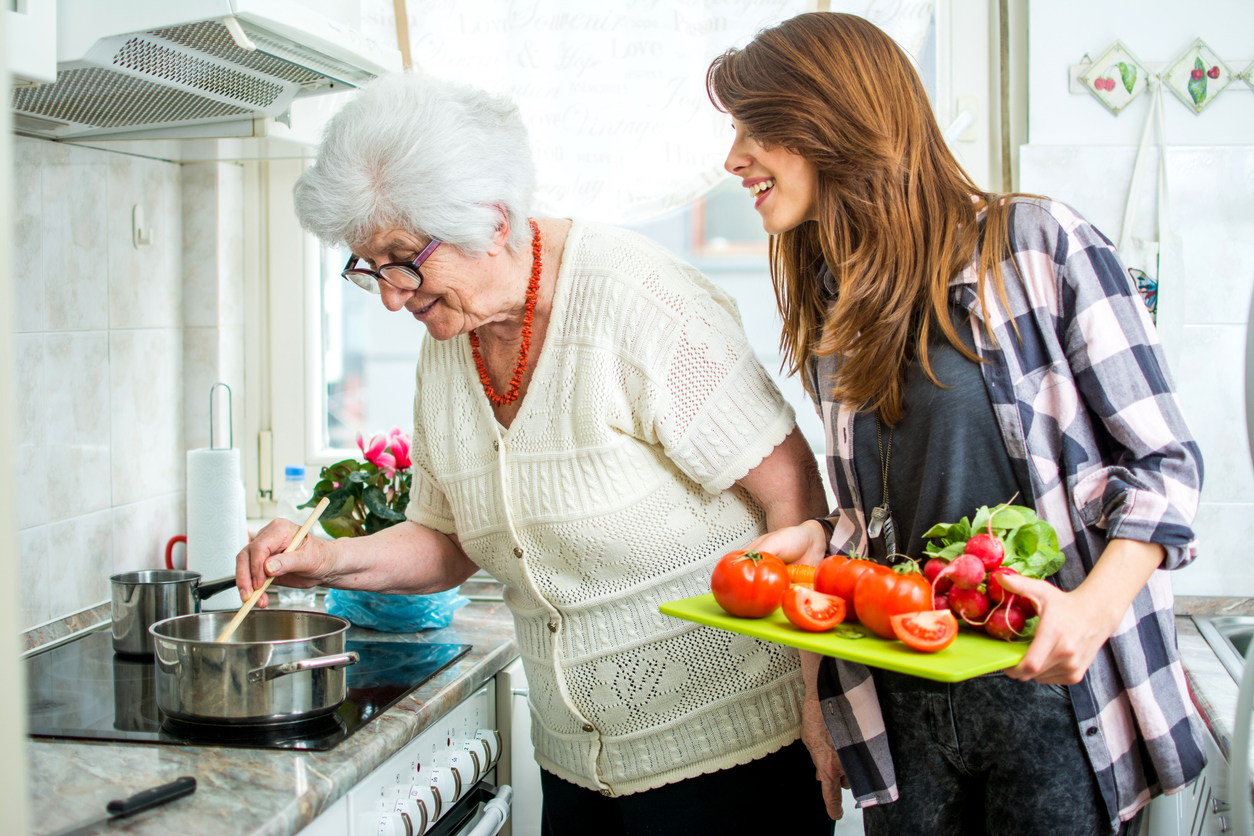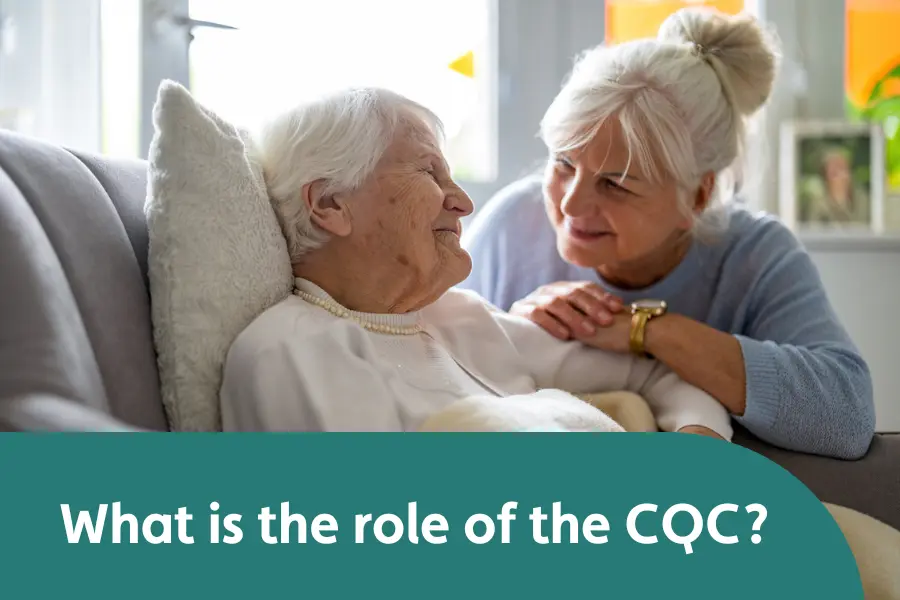When someone you care about begins to need more complex help with their health, it’s natural to wonder whether home is still the right place for them to be. Tasks like stoma care, PEG feeding, or managing multiple medications can feel daunting, especially when the care goes beyond basic support. But with the right team and training, many of these needs can still be met safely and compassionately at home.
In this blog, we’ll talk through:
- What ‘more advanced needs’ actually mean
- What care providers can and can’t help with
- How delegated healthcare works
- The benefits of staying at home
- How to know when it might be time to explore additional support
What do ‘more advanced needs’ look like?
The term ‘complex care’ often refers to health conditions or support needs that go beyond everyday personal care, such as help with washing, dressing or preparing meals. Some examples of more advanced needs might include:
- Managing a urinary catheter or stoma
- PEG (feeding tube) care
- Support with long term health conditions, neurological conditions or stroke recovery
- Help with continence and bowel management
- Using mobility equipment or supporting safe transfers
- Monitoring signs of infection (e.g. urinary tract infections)
- Medication support, including for people living with dementia or chronic illness
These types of needs can feel intimidating—but they don’t always require a move to a care home. In fact, with the right approach, many people with complex needs continue to live well at home.
What are Caregivers allowed to do?
Caregivers can support with a wide range of personal, practical and even health-related tasks. These include:
- Personal care (washing, dressing, toileting)
- Assisting with movement and mobility
- Preparing meals and drinks and meeting nutritional needs, such as diabetic diets or adapted diets like soft or puréed meals
- Prompting or administering medication (depending on local guidance and training)
- Observing and reporting changes in health
- Using equipment such as hoists, wheelchairs or profiling beds
With additional training and support from healthcare professionals, Caregivers can also support with more complex tasks through what’s known as delegated healthcare.


What is delegated healthcare?
Delegated healthcare is when a clinical task—normally carried out by a nurse or other healthcare professional—is safely taught by the relevant healthcare professional and passed on to a trained Caregiver. This is only done when it’s appropriate, safe, and in the best interest of the person receiving care.
At Unique Senior Care, our Delegated Healthcare Strategy equips Caregivers to carry out these tasks confidently and competently. Examples include:
- UTI detection: District nurses train managers to use dipsticks to identify possible infections. Caregivers are then supported to monitor symptoms and escalate concerns quickly if signs of a urinary tract infection appear.
- Basic wound dressings: District nurses can train Caregivers to manage basic wound dressings to help prevent infection and monitor progress. Caregivers can support by keeping the area clean, noting any changes in the skin, and alerting healthcare professionals to any concerns around skin integrity.
- PEG feeding: After training from specialist nurses, Caregivers may be delegated to assist with administering nutrition via PEG, ensuring the correct procedure is followed and the site is kept clean and monitored.
- Stoma care: With proper instruction and supervision, Caregivers can support with emptying and changing stoma bags, monitoring for any signs of discomfort or infection, and helping the client stay comfortable and confident with their routine.
These tasks are only ever delegated following robust training by clinical experts or specialist organisations. The Caregiver must also demonstrate they can carry out the task safely and effectively.
Helena Hitchcox, our Operations Director, said:
“Delegation is never about handing over responsibility. It’s about equipping the right people with the right training, so clients can continue receiving safe, consistent care in the place they feel most comfortable.”
What Caregivers can’t do – and how we support clinical care
There are still certain tasks that must always be carried out by a qualified healthcare professional. These include:
- Diagnosing or prescribing medication
- Inserting or replacing catheters or PEG tubes
- Managing wounds with active infections or complications
- Administering injections (unless delegated and trained to do so)
- Making clinical decisions or changing care plans independently
When these needs arise, Caregivers work closely with district nurses, GPs and other healthcare professionals to coordinate care. For example, a nurse might carry out a clinical task during a visit, while the Caregiver supports before and after, ensuring a smooth experience for the person receiving care.
This close collaboration helps avoid unnecessary hospital admissions and provides peace of mind that everyone involved is trained, informed, and working together.


Is it safe to stay at home with complex needs?
In most cases—yes. With proper planning, training, and support, home care can be just as safe (and often more comfortable) than institutional settings. Here’s why:
- Consistency: The same small team of Caregivers provides ongoing care, getting to know the person’s routines and preferences.
- Familiarity: Staying at home can reduce stress and confusion, especially for people living with dementia.
- Early intervention: Caregivers who visit regularly can spot and escalate concerns early, helping to avoid deterioration or hospital stays.
- Supportive equipment: With the right tools—like hospital beds, hoists, or specialist mattresses—care can be delivered safely at home.
Thanks to our Delegated Healthcare Strategy, Caregivers at Unique Senior Care are upskilled to manage tasks that used to require a nurse visit—freeing up NHS resources and giving families more flexibility.
Benefits of advanced home care
Having more advanced needs doesn’t mean giving up on home life. In fact, some of the biggest benefits include:
- Comfort and independence: Being at home allows people to stay close to their routines, belongings, and sense of familiarity—which often supports confidence and emotional wellbeing.
- More personalised, one-to-one care: With a consistent small team, care is tailored to suit the individual’s personality, routine, and preferences.
- Family involvement: Staying at home makes it easier for loved ones to visit, stay involved in decisions, or just feel nearby and included.
- Fewer infections or delays: Home care reduces the risks linked to shared environments and avoids delays caused by shift patterns or busy care settings.
- Ongoing adaptation: As needs change, care can be quickly adjusted—whether that means extra visits, new equipment, or liaising with nurses to update delegated tasks.
With a fully managed service like ours, care is carefully coordinated and overseen by experienced managers. That means you’re not left to juggle different professionals or worry about what’s happening next.
We take responsibility for ensuring the care plan is followed, updated as needs change, and that Caregivers are supported with guidance from clinicians and regular supervision. This approach helps maintain high standards and gives families peace of mind knowing someone is keeping an eye on the bigger picture.


How to know if more support is needed
Changes in health or mobility can happen gradually, or quite suddenly—especially after a hospital stay or illness. It’s not always easy to recognise when a bit of extra help at home may no longer be enough, but some signs to look out for include:
- Difficulty managing medication or equipment: For example, struggling to use inhalers, manage insulin, or operate a mobility aid safely.
- Repeated hospital visits: Ongoing falls, infections or complications that result in frequent admissions may point to a need for more tailored support.
- Increased fatigue, confusion or risk of falls: These changes can affect confidence, independence and safety—especially if someone is now unsteady on their feet or forgetful with routines.
- Needing help at different times throughout the day or night: If support is now needed across a longer span of the day, a more structured care plan may be beneficial.
If you’re unsure, we’re here to help. We offer a free, no-obligation consultation to understand your situation and offer guidance. We can also liaise with hospital discharge teams or community nurses to make sure everything is in place and care is set up in the safest, smoothest way possible.
Finding the right care
More advanced needs don’t always mean a move into residential care. With the right training, professional partnerships and a strong approach, such as our delegated healthcare strategy, home can continue to be the best place for your loved one.
We’re here to help you understand your options and find a safe, tailored solution that works for your family.
For more information about our delegated healthcare approach or to speak to a member of our care team, get in touch today.
With over 40 years of experience in the care industry, providing outstanding care has always been Helena’s core mission.
Helena has been a dedicated member of Unique Senior Care for eight years, starting as Care Manager and advancing to Head of Extra Care and now serving as Director of Operations.
She holds a Level 5 Diploma in Leadership for Health and Social Care and Children and Young People’s Services (England), as well as a Diploma in Welfare Services. Helena has completed various leadership and management courses, enhancing her expertise in the care industry.
Helena has authored published articles, including one for Skills for Care on managing change through the COVID pandemic. She has a steadfast commitment to advocating for and supporting those in need, ensuring their voices are heard and their rights upheld.



